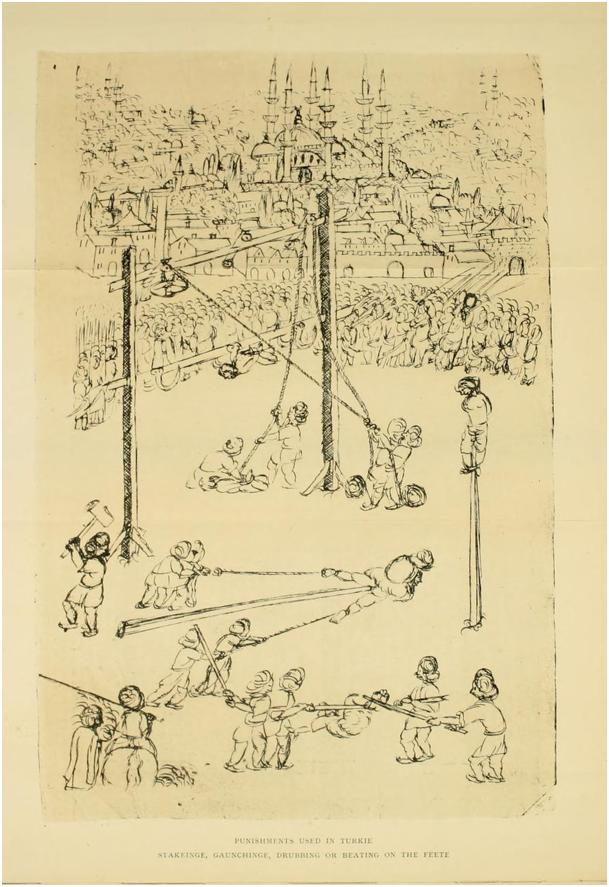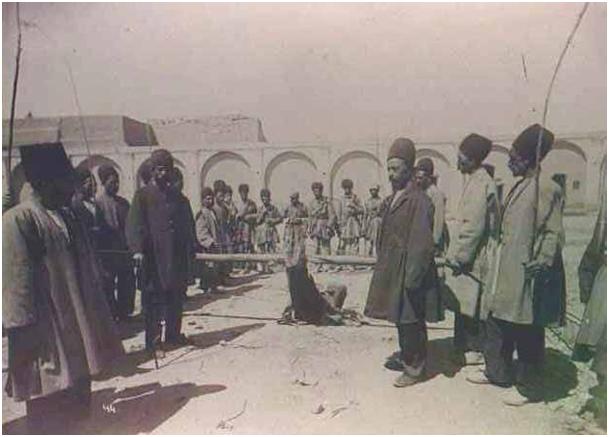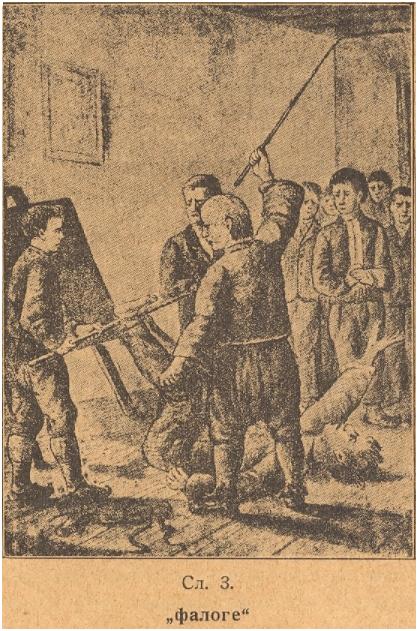Falaqa
Falaqa is a kind of corporal punishment, used from times immemorial in the East, from where it was adopted by some European countries. Today, it is used as a punishment in some Asian and Near Eastern countries, and as a method of torture throughout the world. It consists in beating the victim with a stick, whip, rubber baton or other object on the soles of the feet: due to the multiple nerve endings there, the blows cause pain of very high intensity. If falaqa is used as a punishment, the number of blows is usually specified in the judgment. If used in torture, the victim is beaten as long as it takes to force out a confession or the desired information.
The word falaqa is of Arab origin and denotes the wooden stick to which the victim's feet are tied and raised to better expose them to the blows. The word used more frequently in Europe is bastinado, from Spanish bastón (from Latin bastum) = stick.
A drawing by Peter Mundy, made in Istanbul around 1620, shows (front, bottom) the punishment of falaqa in the Ottoman Empire [1].

Application of falaqa as punishment is also shown on a photograph taken in Iran in the 1920's[2]:

In Serbia, falaqa – under the names of falake and faloge - was used as a disciplinary punishment in schools until the late nineteenth century.


/Caption translated: Fig. 3. „faloge“. In this picture we see old Uncle Mita, school teacher in Leskovac, beating naughty pupils. Faloga was the name of the pole placed between the feet to which the feet were firmly tied./
As a torture technique, falaqa was used routinely by the police in Yugoslavia between the two world wars, especially in the police prison of Glavnja
a in Belgrade[3]. Prisoners of the Greek military junta (1967-1974) were often subjected to falaqa. In its judgment concerning Greece, the European Court of Human Rights ruled that falaqa (the words used in the judgment were falanga and bastinado) represents a „classical form of torture, known for centuries“[4].
[4] Denmark, Norway, Sweden and the Netherlands v.Greece, App. No. 3321-23/67, 3344/67, 4480/70 (1968, 1970) .